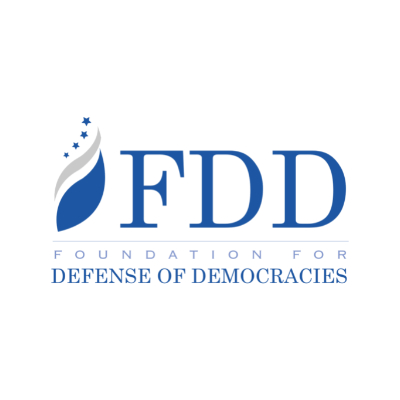How Congress Should Respond to an Interim Iran Deal
- Bias Rating
- Reliability
30% ReliableAverage
- Policy Leaning
100% Very Right
- Politician Portrayal
-50% Negative
Continue For Free
Create your free account to see the in-depth bias analytics and more.
By creating an account, you agree to our Terms and Privacy Policy, and subscribe to email updates.
Bias Score Analysis
The A.I. bias rating includes policy and politician portrayal leanings based on the author’s tone found in the article using machine learning. Bias scores are on a scale of -100% to 100% with higher negative scores being more liberal and higher positive scores being more conservative, and 0% being neutral.
Sentiments
N/A
- Liberal
- Conservative
| Sentence | Sentiment | Bias |
|---|---|---|
Unlock this feature by upgrading to the Pro plan. | ||
Reliability Score Analysis
Policy Leaning Analysis
Politician Portrayal Analysis
Bias Meter
Extremely
Liberal
Very
Liberal
Moderately
Liberal
Somewhat Liberal
Center
Somewhat Conservative
Moderately
Conservative
Very
Conservative
Extremely
Conservative
-100%
Liberal
100%
Conservative

Contributing sentiments towards policy:
59% : Notably, Iran briefly enriched to 83.7 percent purity in early 2023.58% : By enabling Iran to access $20 billion in freed-up cash and increase its energy exports, the United States would be effectively underwriting Iran's provision of drones to Russia for use against Ukraine; offering the Islamic Republic more resources to bolster its ballistic missile arsenal; facilitating expanded Russian sanctions evasion through Iran using tried-and-true tactics perfected by Tehran; tacitly green-lighting more plots to assassinate U.S. officials; and formally abandoning brave Iranian protestors, who deserve maximum support amid their national uprising, which is continuing despite the regime's violent crackdown.
57% : In practice, Iran could still expand its nuclear capabilities and advance toward the nuclear threshold.
56% : The main incentives for Iran are financial.
56% : While it remains unclear whether the nuclear arrangements and the hostage arrangements constitute two separate agreements or two parts of the same accord, the understandings between Washington and Tehran would reportedly release Iranian funds held in Iraq and South Korea, provide Iran with financial assistance from the International Monetary Fund (IMF), and relax enforcement of U.S. sanctions.
54% : In effect, the United States would be paying Iran to build its technical expertise and grow the rest of its uranium stockpiles, thereby enabling Tehran to sit comfortably on the nuclear threshold until a time of its own choosing.
54% : Congress should pass a resolution supporting the restoration of an international standard of zero enrichment for Iran.
53% : No one who claims to stand with the people of Iran can credibly support an arrangement that would enrich and thereby empower the regime.
53% : Moreover, Iran will be free to turn its focus and terror resources on Israel, increasing the likelihood of a regional conflagration.
52% : Under the arrangement, Iran reportedly will be permitted to continue enriching to 60 percent purity.
50% : A wide range of press reports has identified the likely parameters of any informal, unwritten agreement with Iran.
50% : Experts in mid-June assessed that drawing on varied enriched uranium stockpiles, Tehran could produce enough weapons-grade uranium for up to eight nuclear weapons in three months.
50% : The statute specifies that within five calendar days after reaching any agreement with Iran relating to its nuclear program, the president must transmit the full agreement to Congress "regardless of the form it takes."
50% : A new agreement would implicitly signal continued U.S. support for these sunsets, contradicting the Biden administration's earlier assertions that it would seek a "longer and stronger" agreement with Iran.
49% : In addition, the arrangement would entail U.S. ransom payments to Tehran in exchange for the release of three American hostages in Iran -- Siamak Namazi, Emad Shargi, and Morad Tahbaz -- whom the regime imprisoned on fabricated espionage charges.
49% : A February 2023 report detailed an ongoing hostage negotiation between Washington and Tehran that would include the release of $7 billion in sanctioned funds held in escrow under U.S. sanctions laws in South Korea.
49% : In exchange for the U.S. concessions, Iran would continue its foreign and security policy but delay further escalation with respect to its nuclear program, military support for Russia, and attacks against select U.S. positions in the region.
49% : Should Tehran provide Moscow with ballistic missiles to use against Ukraine, it would mark the most significant proliferation of Iranian ballistic missiles to another state in the history of the Islamic Republic.
49% : While the administration claims the waiver is no different than any waiver previously issued regarding Iraq's import of electricity from Iran, any issuance of the waiver, if also tied to a nuclear arrangement, could implicate the congressional review requirements in INARA.
48% : Press reports suggest Iran has up to $7 billion more held in Baghdad that the Iraqi government could release in the weeks and months ahead.
48% : Congress should use every legal tool available to stop the release of funds to Iran, potentially including a request for a temporary restraining order against the Treasury Department. 3.
47% : Lax sanctions enforcement would also open new opportunities for Russia to use Iran for expanded sanctions evasion and to learn from evolving Iranian sanctions busting practices.
47% : Iran's revolutionaries have learned over the years that the West is willing to engage in lopsided and Faustian bargains with Tehran when faced with the regime's willingness to use dual-citizens and foreign nationals as pawns to extract concessions.
47% : Congress should also press the UK and European Union (EU) not to delist Iranian missile, military, and nuclear entities found in Annex II - Attachment 2 of the JCPOA.
46% : The Biden administration and Iran are reportedly negotiating over an informal, unwritten agreement that would entail significant U.S. concessions to the Islamic Republic -- parts of which may already be underway.
46% : The head of the Central Bank of Iran (CBI), an institution sanctioned by the U.S. Treasury Department for financing Iran's Islamic Revolutionary Guard Corps (IRGC), a designated foreign terrorist organization, recently visited Washington for IMF meetings.
46% : It remains unclear if the upcoming termination of United Nations (UN) prohibitions in October 2023 on Iranian ballistic missile activity would change such an understanding.
46% : The administration would be accepting the sunset provisions of the JCPOA, allowing key restrictions on Iran -- including its nuclear program -- to expire.
45% : Most significantly, America would provide Iran with billions of dollars in sanctions relief in exchange for mere pledges by Tehran to refrain from enriching uranium at weapons-grade levels.
45% : But money is fungible, and this will be yet another bailout for Tehran and its faltering economy that would free up more resources for Tehran's missile, military, and nuclear programs, and strengthen the regime's infrastructure of repression at home.
45% : Congress should consider legislation tying any sanctions relief for Iran to certifications by both the U.S. intelligence community and the International Atomic Energy Agency that Iran's nuclear program is purely peaceful and does not have any military dimensions.
44% : The United States has already provided Iran with significant financial concessions in an effort to reach a deal.
44% : Despite warning the public of deepening military and strategic ties between Iran and Russia, the Biden administration is moving forward with an agreement that would indirectly subsidize Iran's transfer of weapons to Russia.
43% : Notably, the Sultanate of Oman served as a backchannel for talks between Washington and Tehran prior to the 2013 interim nuclear deal that led to the 2015 nuclear deal, formally known as the Joint Comprehensive Plan of Action (JCPOA).
42% : Earlier in June, the Biden administration reportedly authorized the release of more than $2.7 billion held in escrow in Iraq to allow Iran to pay off its debts.
42% : The United States blocked such a bailout in 2020, and U.S. law mandates that the American executive director at the IMF oppose the allocation of any funds to a state sponsor of terrorism, such as Iran.
42% : Media reports vary regarding the exact parameters of Iran's nuclear "concessions," with the latest account from the New York Times stating that Tehran would merely commit not to enrich uranium above 60 percent purity (and reportedly without stockpiling at 60 percent levels), which Iran has been producing since April 2021.
42% : The administration might respond by saying this is merely an interim arrangement only meant to persuade Iran to hold back from crossing the nuclear threshold.
42% : Meanwhile, the missile prohibitions on Iran enshrined in UN Security Council Resolution (UNSCR) 2231 are slated to expire in October 2023, thereby removing international restrictions on Tehran's weapons transfers to Russia.
42% : The agreement abandons the people of Iran and the national uprising that continues.
41% : The agreement will not prevent Iran from developing a nuclear weapon.
40% : Iran may reportedly agree to refrain from transferring ballistic missiles to Russia as well, though it has not done so to date.
40% : Congress should immediately launch an investigation into the Biden administration's possible violation of the International Financial Institutions Act and demand immediate testimony from Treasury Department officials to determine what steps they have taken to facilitate an IMF bailout for Iran.
39% : However, Tehran could easily reverse this pledge at any time or deny its role in attacks committed by its terrorist proxies, which operate between Syria and Iraq and control a vital land corridor in the area.
39% : It may instead bring Iran closer to the nuclear threshold.
38% : Congress should pass a resolution supporting a new U.S. policy direction for Iran that combines maximum support to the Iranian people, strict enforcement of economic and financial sanctions, isolation within international fora, accountability at the International Atomic Energy Agency, the immediate snapback of UN sanctions, a credible military threat against Iran, and other policies that address the growing China-Russia-Iran axis.
37% : There is also no indication that Tehran would cease ongoing plots to kill or kidnap former U.S. officials and Iranian Americans.
37% : The administration may be violating U.S. law by providing sanctions relief to Iran without first notifying Congress and waiting 30 days before releasing funds.
36% : Congress should consider a range of steps that would signal its disapproval of the new deal and blunt its deleterious effects.
34% : The New York Times report also suggests that Iran might agree to refrain from attacking American contractors in Syria and Iraq.
34% : U.S. Secretary of Defense Lloyd Austin testified in March 2023 that Iran and its proxies had attacked U.S. forces in those countries 83 times since January 2021.
34% : The release of funds to Iran in violation of INARA would constitute a harm for which Congress could seek injunctive relief.
33% : Congress should pass a resolution demanding the immediate snapback of UN sanctions on Iran.
32% : At the same time, by keeping details of the agreement secret and avoiding any acknowledgment of it, the Biden administration may be seeking to evade the Iran Nuclear Agreement Review Act (INARA), which requires Congress to review any nuclear-related deal with Iran.
32% : Iran's ability to escalate its nuclear program in the aftermath of the Trump administration's withdrawal from the JCPOA occurred because the accord required Iran to store, and not destroy, excess centrifuges and nuclear material.
31% : The Biden administration may argue that Tehran can use the $7 billion only for "humanitarian purposes" or to help pay down Tehran's outstanding debts.
29% : Based on current reports, the release of funds for Iran prior to the Biden administration's submission of any agreement for congressional review may already entail a violation of INARA.
28% : A massive ransom payment to Iran may lead to more incidents of hostage-taking of U.S. nationals abroad, both by Tehran and by U.S. adversaries who seek to extort America. 9.
27% : Yet nothing in the reported arrangement would stop Iran from constructing a new underground nuclear facility that experts fear would make it all but impossible to stop Iran from developing nuclear weapons.
27% : The Biden administration may be violating U.S. law by allowing the IMF to provide Iran, a designated state sponsor of terrorism, with a multibillion-dollar bailout.
26% : Whether or not Biden submits the deal to Congress, the House and Senate should consider passing resolutions of disapproval for any such arrangement between the United States and Iran.
23% : As FDD's map of protests in Iran indicates, anti-regime protests in Iran that began in September 2022 continue to this day.
*Our bias meter rating uses data science including sentiment analysis, machine learning and our proprietary algorithm for determining biases in news articles. Bias scores are on a scale of -100% to 100% with higher negative scores being more liberal and higher positive scores being more conservative, and 0% being neutral. The rating is an independent analysis and is not affiliated nor sponsored by the news source or any other organization.


























 FDD
FDD